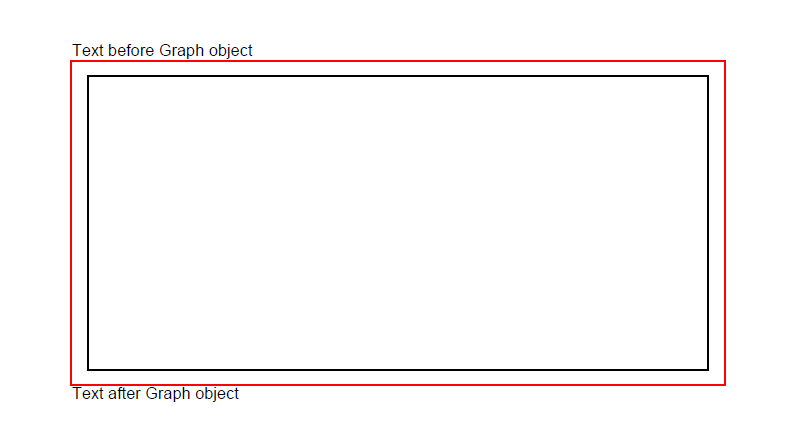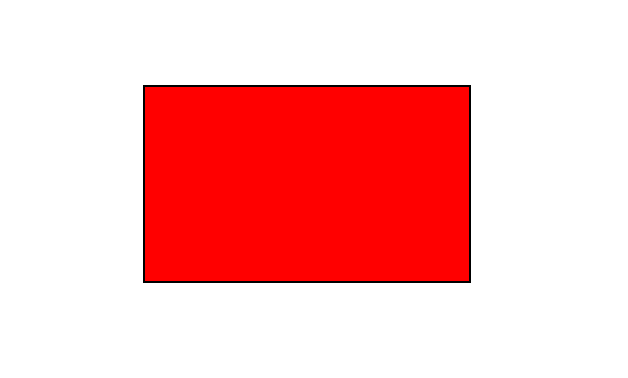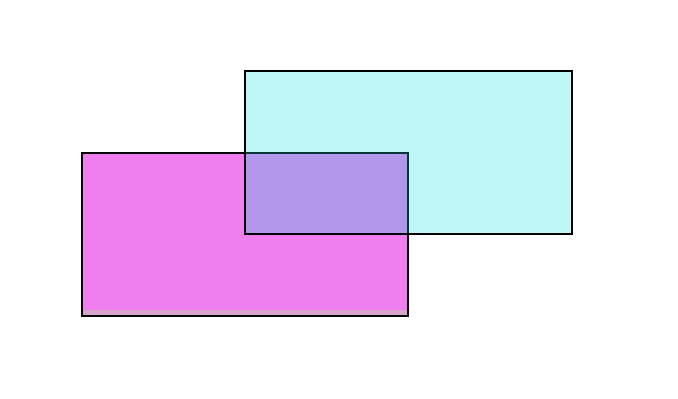Add Rectangle Object to PDF file
Add Rectangle object
Aspose.PDF for Python via .NET supports the feature to add graph objects (for example graph, line, rectangle etc.) to PDF documents. You also get the leverage to add Rectangle object where you also offers the feature to fill rectangle object.
First, let’s look at the possibility of creating a Rectangle object.
Follow the steps below:
- Create a new PDF Document.
- Add Page to pages collection of PDF file.
- Add Text fragment to paragraphs collection of page instance.
- Create Graph instance.
- Set border for Drawing object.
- Add Rectangle object to shapes collection of Graph object.
- Add graph object to paragraphs collection of page instance.
- Add Text fragment to paragraphs collection of page instance.
- And save your PDF file
import aspose.pdf as ap
import aspose.pdf.drawing as drawing
import datetime
# Create Document instance
document = ap.Document()
# Add page to pages collection of PDF file
page = document.pages.add()
text_fragment = ap.text.TextFragment("Rectangle")
# Add Text fragment to paragraphs collection of page instance
page.paragraphs.add(text_fragment)
# Create Graph instance
graph = drawing.Graph(400, 300)
# Add graph object to paragraphs collection of page instance
page.paragraphs.add(graph)
# Set border for Drawing object
border_info = ap.BorderInfo(ap.BorderSide.ALL, ap.Color.red)
graph.border = border_info
# Create Rectangle instance
rect = drawing.Rectangle(20, 20, 350, 250)
# Add rectangle object to shape collection of Graph object
graph.shapes.append(rect)
# Add Text fragment to paragraphs collection of page instance
page.paragraphs.add(text_fragment)
# Save PDF file
document.save(path_outfile)

Create Filled Rectangle Object
Aspose.PDF for Python via .NET also offers the feature to fill rectangle object with a certain color.
The following code snippet shows how to add a Rectangle object that is filled with color.
import aspose.pdf as ap
import aspose.pdf.drawing as drawing
import datetime
# Create PDF document
document = ap.Document()
# Add a page
page = document.pages.add()
# Create Graph instance
graph = drawing.Graph(100, 400)
# Add graph object to the paragraphs collection of the page instance
page.paragraphs.add(graph)
# Create Rectangle instance with specified dimensions
rect = drawing.Rectangle(100, 100, 200, 120)
# Specify fill color for the Rectangle object
rect.graph_info.fill_color = ap.Color.red
# Add rectangle object to the shapes collection of the Graph object
graph.shapes.add(rect)
# Save PDF document
document.save(path_outfile)
Look at the result of rectangle filled solid color:

Add Drawing with Gradient Fill
Aspose.PDF for Python via .NET supports the feature to add graph objects to PDF documents and sometimes it is required to fill graph objects with Gradient Color.
The following code snippet shows how to add a Rectangle object that is filled with Gradient Color.
import aspose.pdf as ap
import aspose.pdf.drawing as drawing
import datetime
# Create Document instance
document = ap.Document()
# Add page to pages collection of PDF file
page = document.pages.add()
# Create Graph instance
graph = drawing.Graph(400, 400)
# Add graph object to paragraphs collection of page instance
page.paragraphs.add(graph)
# Create Rectangle instance
rect = drawing.Rectangle(0, 0, 300, 300)
# Specify fill color for Graph object
gradient_color = ap.Color()
gradient_settings = drawing.GradientAxialShading(ap.Color.red, ap.Color.blue)
gradient_settings.start = ap.Point(0, 0)
gradient_settings.end = ap.Point(350, 350)
gradient_color.pattern_color_space = gradient_settings
rect.graph_info.fill_color = gradient_color
# Add rectangle object to shape collection of Graph object
graph.shapes.append(rect)
# Save PDF file
document.save(output_file)

Create Rectangle with Alpha color channel
Aspose.PDF for Python .NET supports to fill rectangle object with a certain color. A rectangle object can also have Alpha color channel to give transparent appearance. The following code snippet shows how to add a Rectangle object with Alpha color channel.
import aspose.pdf as ap
import aspose.pdf.drawing as drawing
import datetime
# Create Document instance
document = ap.Document()
# Add page to pages collection of PDF file
page = document.pages.add()
# Create Graph instance
graph = drawing.Graph(100, 400)
# Add graph object to paragraphs collection of page instance
page.paragraphs.add(graph)
# Create Rectangle instance
rect = drawing.Rectangle(100, 100, 200, 120)
# Specify fill color for Graph object
rect.graph_info.fill_color = ap.Color.from_argb(128, 244, 180, 0)
# Add rectangle object to shape collection of Graph object
graph.shapes.append(rect)
# Create second rectangle object
rect1 = drawing.Rectangle(200, 150, 200, 100)
rect1.graph_info.fill_color = ap.Color.from_argb(160, 120, 0, 120)
graph.shapes.append(rect1)
# Save PDF file
document.save(output_file)

Control Z-Order of shapes
Aspose.PDF for .NET supports the feature to add graph objects (for example graph, line, rectangle etc.) to PDF documents. When adding more than one instance of same object inside PDF file, we can control their rendering by specifying the Z-Order. Z-Order is also used when we need to render objects on top of each other.
The following code snippet shows the steps to render Rectangle objects on top of each other.
import aspose.pdf as ap
import aspose.pdf.drawing as drawing
import datetime
# Create Document instance
document = ap.Document()
# Add page to pages collection of PDF file
page = document.pages.add()
# Set size of PDF page
page.set_page_size(375, 300)
# Set left margin for page object as 0
page.page_info.margin.left = 0
# Set top margin of page object as 0
page.page_info.margin.top = 0
# Create a new rectangle with Color as Red, Z-Order as 0 and certain dimensions
add_rectangle(page, 50, 40, 60, 40, ap.Color.red, 2)
# Create a new rectangle with Color as Blue, Z-Order as 0 and certain dimensions
add_rectangle_to_page(page, 20, 20, 30, 30, ap.Color.blue, 1)
# Create a new rectangle with Color as Green, Z-Order as 0 and certain dimensions
add_rectangle_to_page(page, 40, 40, 60, 30, ap.Color.green, 0)
# Save resultant PDF file
document.save(output_file)
